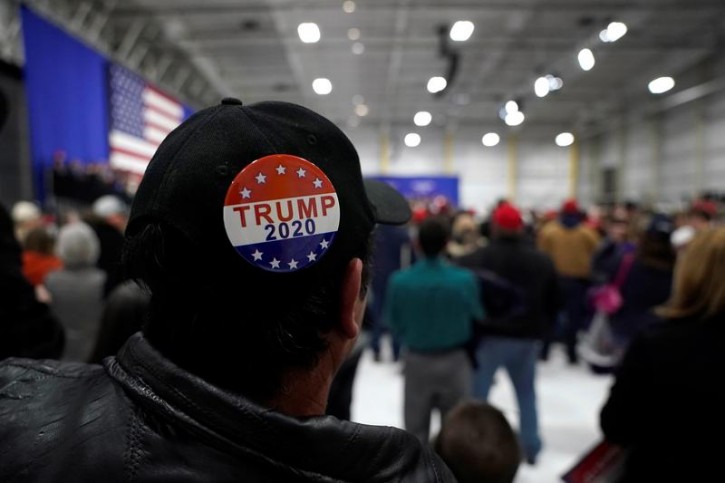
Washington – Grappling with the realities of President Donald Trump’s reign, Democrats are trying to offer a counterweight to the president’s message — without making it all about Trump.
An annual conference organized by a prominent Democratic think tank Tuesday included an early glimpse at some of the Democrats plotting a challenge to Trump in 2020. But it also laid bare some of the challenges Democrats face in opposing a president whose presence has been all-consuming and in developing an alternative agenda to reach voters who turned to Trump in 2016.
“What they want to hear about is the economy and their plans for it. They don’t want to hear about Donald Trump every single minute,” Sen. Amy Klobuchar, D-Minn., said at the Center for American Progress’ Ideas Conference. “We resist, but we also insist on a better way forward.”
The lineup at the daylong conference featured appearances by several potential 2020 candidates, including Klobuchar, Sens. Bernie Sanders of Vermont, Cory Booker of New Jersey and Elizabeth Warren of Massachusetts. Also speaking: former Housing Secretary Julian Castro and current New York City Mayor Bill de Blasio.
In the lead-up to the 2018 midterm elections, Democrats have pointed to growing activism since Trump’s election, from the women’s march after his inauguration to a student movement in support of gun control measures following the deadly school shooting in Parkland, Florida. And they have captured special election victories in Alabama, electing Democratic Sen. Doug Jones, and in western Pennsylvania, helping Democrat Conor Lamb overcome millions in Republican expenditures in a GOP-leaning district.
Democrats are hoping for a “blue wave” in the midterms to recapture one or both chambers in Congress, which they have said would serve as a precursor to ousting Trump from office.
“The reason why we don’t have Trumpcare today,” said Gillibrand, referring to the president’s failed attempt to overhaul the “Obamacare” system, “is because the grassroots stood up, stood tall and said, ‘No.’”
But the party is still dealing with tensions on how far it should move to embrace more liberal policies on the economy and health care in response to Trump.
“It is so important that we set big goals and we not be afraid of that,” said de Blasio, who announced plans for the New York Police Department to “overhaul and reform” policies related to marijuana enforcement in the next month.
Castro, the former HUD secretary under Obama and the former San Antonio mayor, said the party needed a “new blueprint” that would make universal prekindergarten a reality, provide free college for at least the first two years and protect hundreds of thousands of young immigrants from deportation.
One of the critiques of Hillary Clinton’s 2016 Democratic presidential campaign was that it failed to present a coherent argument on what the party would stand for under her watch. Trump, meanwhile, successfully distilled his message into his slogan, “Make America Great Again,” and narrowly defeated Clinton in Midwestern states like Michigan and Wisconsin that had been safe Democratic territory.
Sen. Sherrod Brown, D-Ohio, noted that Trump claimed victory in his home state, a perennial presidential battleground, by nearly 9 percentage points in 2016, saying the president won in “communities he had no business winning.”
“I think workers in my state are looking for somebody in elected office to talk about the dignity of work, to talk about whose side are you on, to talk about why work matters,” Brown said. “I don’t hear that enough from elected officials.”
Neera Tanden, the center’s president and a longtime Clinton adviser, said that while Trump represents “an unprecedented threat to our values and our norms,” Democrats cannot simply resist the president and his policies but instead need to provide an alternative to his agenda.
The event was attended by a number of financial donors, political strategists and activists who are beginning to assess what is expected to be a massive field in 2020, spurred in part by Trump’s sluggish public approval ratings.
Robert Wolf, a major Democratic donor who attended the conference, said the party was “starting to build a narrative of things we stand for,” as opposed to simply opposing Trump at every turn.
“We have to make sure we’re the party of ‘for things,’” Wolf said.
As reported by Vos Iz neias
